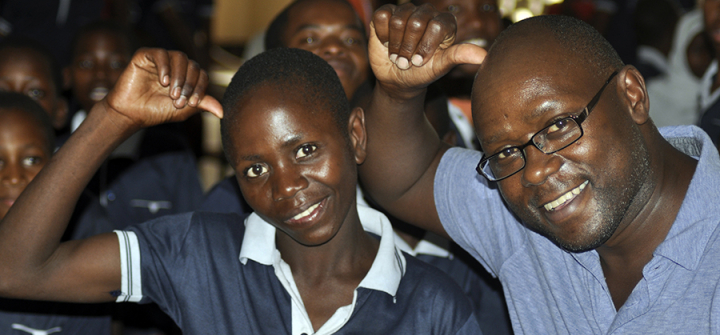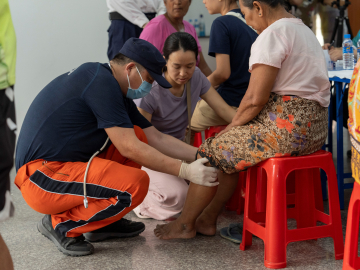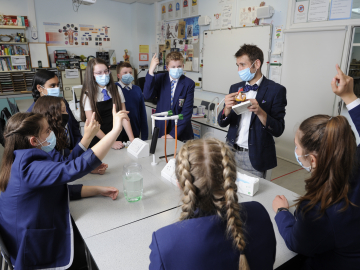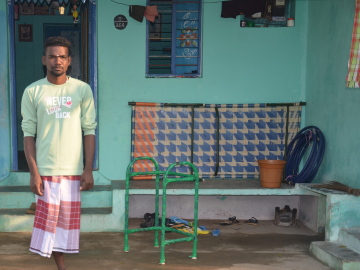The Untold Global Health Story Contest Winners of 2017
We have the winners: Unintentional burns in Nepal, submitted by Emaline Laney, and deafness in developing countries, proposed by Christi Batamula and by Matthew Yau, are the Untold Global Health Stories of 2017.
The winning stories of the 2017 Untold Global Health Stories contest, sponsored by CUGH, NPR’s Goats and Soda blog, and Global Health NOW of the Johns Hopkins Bloomberg School of Public Health, will be covered in-depth by journalists. NPR’s Goats and Soda will cover deafness in developing countries, while Global Health NOW will send a journalist to Nepal to cover the story of unintentional burns.

Winners of the 2017 Untold Stories of Global Health Contest (Center: Emaline Laney and Christi Batamula, Phd. Winner Matthew Yau was unable to attend the CUGH meeting.
The contest, designed to give a platform to important but underreported global health stories, drew over 200 submissions this year.
Laney, an MSc candidate at the London School of Hygiene and Tropical Medicine, UK, drew on her studies in Nepal for her entry. “My journey to study cholera quickly shifted as I found myself in a Nepali O.R. with a team of plastic surgeons watching a burn-contracture-release of a child’s arm,” she wrote in her entry. “This is a story about burns—the forgotten global health issue. Despite preventability, serious burns affect 11 million people annually, causing 265,000 deaths just due to fire (WHO). Low-income countries are disproportionally affected, encompassing 95% of the global burden. Nepal alone suffers from over 2,000 annual deaths due to burns; that is more than those with HIV, TB, or Malaria. Burns are also the second leading causes of disability, resulting in economic and psychological ramifications at the individual and population level. One major factor is that nearly 2/3 of Nepal’s population still relies on open fire. Inevitably, women and children are at high risk. Increasing burn prevention and acute first-aid burn education is key to avoid unnecessary suffering and loss of life,” Laney wrote.
Christi Batamula, PhD, an assistant professor at Gallaudet University, entered the contest to highlight the problem of deafness in Tanzania. “Deafness is a huge global health epidemic, particularly in Tanzania,” she wrote in her entry. “In Dodoma, the capitol, there are many children and adults who are deaf. Many become deaf due to illness and lack access to appropriate medical care. In the Dodoma Region, only about 2% of school-aged children who are deaf are attending school. Therefore, many are left without any access to formal language or education, making them more susceptible to a life of poverty and dependence on hearing family or caretakers in their villages. There is a negative stigma associated with being deaf that results in higher levels of abuse. There is a high need for education and vocational training for deaf in this region. This would empower more deaf to be self sufficient and no longer at the mercy of others to survive.”
She shares the prize with Matthew Yau, a Bachelor of Health Sciences (BHSc) student from McMaster University, who submitted a similar idea: “In developed nations, health care practitioners are fully equipped with surgical interventions, early screening techniques, and other resources for the deaf ... Every challenge presented to the deaf in developed countries is magnified a thousandfold in developing nations. Sign language programs, information distribution, and widespread screening needs to be implemented to help this hidden vulnerable population,” he wrote.
Join the thousands of subscribers who rely on Global Health NOW summaries and exclusive articles for the latest public health news. Sign up for our free weekday enewsletter, and please share the link with friends and colleagues: Subscribe to GHN
A deaf Tanzanian American and a student in a deaf unit in Tanzania signing their identical "sign names." Image/Amabilis Batamula





